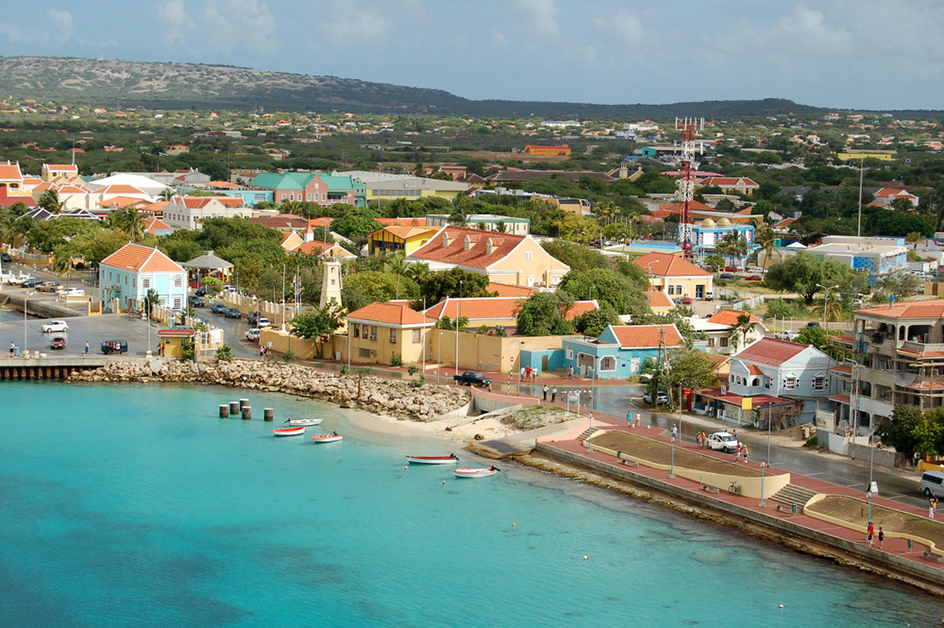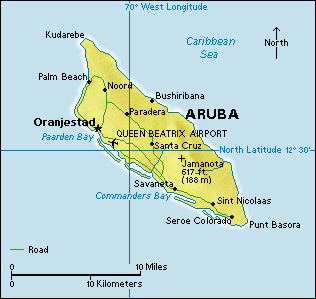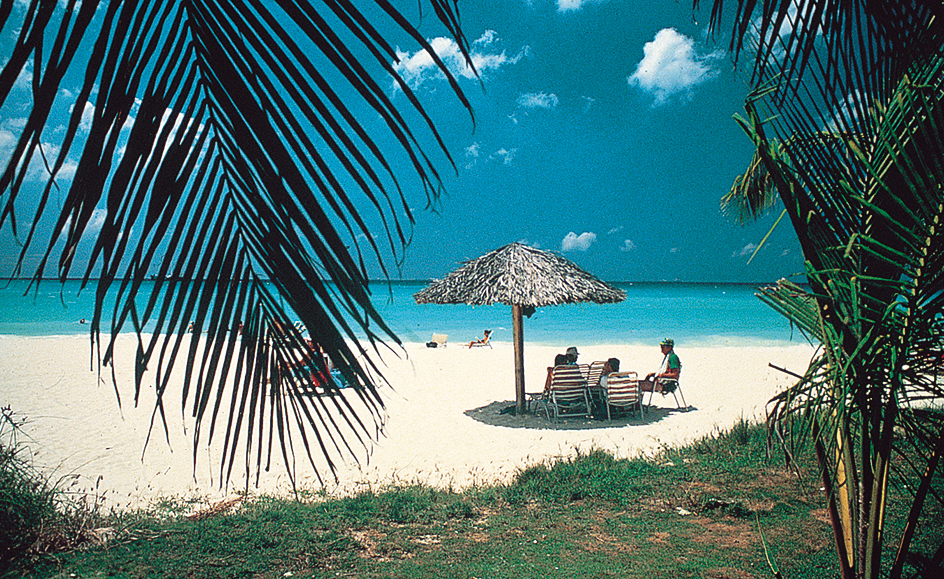Aruba << ah ROO bah >> is an island in the Caribbean Sea that is part of the Lesser Antilles island group. Since 1986, Aruba has been an autonomous (self-governing) country within the Kingdom of the Netherlands. Previously, it was part of the Netherlands Antilles, which was a largely independent part of the Kingdom of the Netherlands. Aruba covers 69 square miles (180 square kilometers) and has a population of about 110,000. Oranjestad is the capital and largest city.

Aruba is a hilly, rocky island that supports little agriculture. However, it has coral reefs, white sand beaches, and a warm, dry climate that attract many tourists. Aruba’s population is predominantly mestizo—that is, of mixed Indigenous (native) and European ancestry. Dutch and Papiamento, the local Creole language, are the official languages.
Aruba is one of the most prosperous islands in the Caribbean. Its chief industries include tourism, financial services, and oil refining.

Indigenous people were the first inhabitants of Aruba. The Spanish explorer Alonso de Ojeda claimed Aruba for Spain in 1499. The Dutch gained control of the island in 1636. A gold rush in the 1820’s and the opening of an oil refinery in the 1920’s contributed to Aruba’s prosperity. After World War II (1939-1945), Arubans became increasingly uncomfortable as part of the Netherlands Antilles. There were constant disputes between Aruba and the nearby island of Curaçao. Arubans began seeking independence from both the Netherlands and the other islands of the Netherlands Antilles. An agreement between Aruba and the Netherlands resulted in Aruba’s separation from the Netherlands Antilles in 1986. Aruba has local self-government, but the Netherlands retains responsibility for its defense and foreign affairs.

See also Netherlands Antilles.
